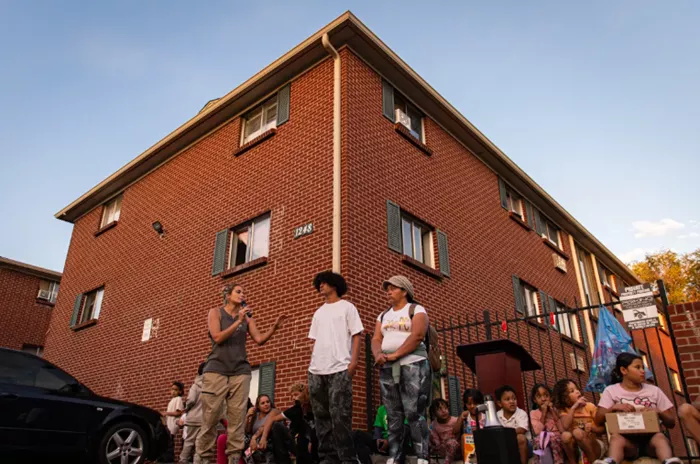Donald Trump’s promise to initiate a mass deportation of immigrants in Colorado is creating tension in a state with over half a million immigrants. Colorado, known for its inclusive approach, relies on immigrants to maintain a strong economy.
In Colorado, one in ten residents is an immigrant—whether undocumented, holding a green card, working with a visa, protected under the DACA program, or a naturalized citizen.
Trump’s immigration policies have sparked concern across the state, especially after he claimed that criminal immigrant gangs had taken over the city of Aurora, Colorado, an assertion without evidence. He announced plans for a nationwide deportation sweep called “Operation Aurora.”
Governor Jared Polis has taken a cautious stance. His spokesperson, Eric Maruyama, said the state supports federal efforts to deport dangerous criminals but opposes deportations of hardworking families and children. Maruyama also warned that mass deportations would harm Colorado’s economy, especially sectors like farming and construction, leading to a potential recession.
While Polis has not disclosed how he plans to respond if federal law enforcement targets immigrants in Colorado, his administration is clearly preparing for a tough battle.
The fear surrounding mass deportations is palpable among organizations working with immigrants. Kate Leslie, who helps Afghan refugees, expressed concern about the uncertainty of the situation. Ricardo Perez, director of the Hispanic Affairs Project, echoed this, noting the anxiety it has caused within immigrant communities. His group is trying to organize support, working with local officials and non-immigrant populations who want to help.
For many immigrants, dealing with the stress and fear is an ongoing challenge. Perez predicts that protests and marches will take place if deportations move forward.
Those who challenge deportations in court will face a backlog in Colorado’s immigration courts. With just 10 immigration judges overseeing nearly 78,000 pending cases, the average wait time for an asylum hearing is over two years.
Tom Homan, Trump’s appointed “border czar,” has warned that deportations will start with individuals deemed public safety or national security threats. He plans to involve local police, the National Guard, and potentially the military.
Colorado’s laws, however, complicate such efforts. The state prohibits local law enforcement from collaborating with federal immigration authorities and allows undocumented immigrants to obtain driver’s licenses. The Democratic-led legislature has also funded nonprofits assisting migrants.
These policies have led some conservatives to label Colorado a “sanctuary state,” though the term lacks a clear definition.
The level of support for Trump’s immigration policies among Colorado Republicans is uncertain. U.S. Rep.-elect Gabe Evans, a Republican from Fort Lupton, said he prioritizes deporting criminal immigrants but is less concerned about those who don’t pose a major threat. Evans, who will represent Colorado’s 8th Congressional District, opposed separating immigrant families and emphasized securing the border first. He also plans to introduce a bill allowing local law enforcement to work with federal agents to deport violent criminals.
This ongoing debate over immigration is set to play a significant role in shaping Colorado’s future policies and response to federal action.
Related topics:
- Immigrant Advocates Urge Biden: ‘Act Now to Address Urgent Crisis’
- Deported Immigrant Vows to Continue Supporting Trump, No Matter What
- Immigrant Community Braces for Uncertainty as Trump Pledges Major Immigration Overhaul


